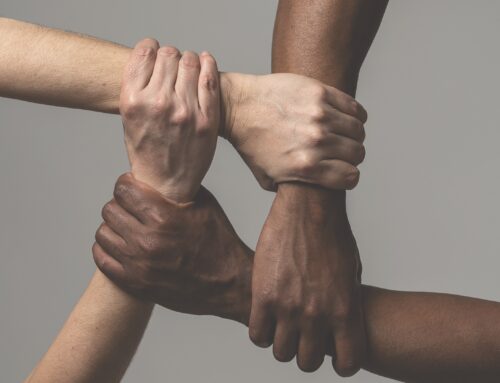Sickle cell disease: vulnerability and prejudice hinder access to treatment
March 9, 2022

If we look at it throughout history, the black population has been the most penalized in various social contexts due to racial prejudice. In the areas of education and work, discrimination is evident. But it is also possible to perceive it in the health area, mainly in the reception of patients suffering from sickle cell disease.
Health professionals should be attentive to patients with SCD
Sickle Cell Disease is a genetic condition that, although it affects all races and social strata today, due to the enormous miscegenation that has taken place in the country, affects mostly the Afro-descendant population.1
Health professionals, being attentive in the care of patients from FD who seek health services, can often minimize the prejudice that countless patients report when being treated, whether when their pain is ignored or even forgotten for long hours - and even days - in the emergency room. The disease is serious, causes intense crises of pain and often requires immediate hospitalization, which is life-threatening for the patient.
Social and economic vulnerability can interfere with care
Prejudice and structured racism that exist in society as a whole can have repercussions in the health area, ranging from the lack of adequate information about Sickle Cell Disease in schools and universities, to a certain negligence at the time of care, by minimizing the patient's complaints and the severity of the crises.
This reality only increases the vulnerability of the black population, because it reduces the dialogue between attendants and patients, increasing barriers to access to treatment, which can lead to withdrawal and discredit of users in the public health system.1
The National Policy for the Comprehensive Health of the Black Population
The definition and implementation by the Ministry of Health, in May 2009, of the National Policy for the Comprehensive Health of the Black Population (PNSIPN) through Ordinance GM/MS nº 992, brought some hope to the 54% of Brazilian citizens who declare themselves black. or brown. With this Policy, the Ministry of Health recognized and assumed the need to institute mechanisms to promote the integral health of the black population and to face institutional racism in the SUS - Unified Health Service, aiming to overcome the structural barriers that negatively affect its indicators of health. health.2
What needs to be done to correct inequalities
In order to sensitize society and improve the quality of care, it is necessary to invest resources in the development of educational actions with health professionals and managers, aiming to improve services to the black and brown population.3
It is also important that society continues to organize itself through civil entities that bring together the victims of sickle cell disease and their families, so that together they can assert their rights,4 among them, having access to new drugs that can reduce the severity of crises and the number of hospitalizations, as is the case of the first hydroxyurea-based treatment with indication on the leaflet and precise and safe dosage for patients from 2 years of age, approved by Anvisa in November 2021.
#preconceito #preconceitoracial #racismo #racismoestrutural #racismoinstitucional #discriminação #afrodescendentes #doençafalciforme #anemiafalciforme #saúdepública #sus #pnsipn #saúdeintegral #populaçãonegra #pretosepardos #hidroxiureia #novomedicamento #anvisa
References:
- Scielo Brazil. Experience of racial and class prejudice in sickle cell disease. Available in: https://www.scielo.br/j/sausoc/a/5MxwBMXyqpfXk4BMsvW8nCf/?lang=pt Accessed in February 2022 Accessed in March 2022.
- Ministry of Health – SUS. Virtual Health Library of the Ministry of Health. National Policy for the Comprehensive Health of the Black Population. Available in: https://bvsms.saude.gov.br/bvs/publicacoes/politica_nacional_saude_populacao_negra_3d.pdf Accessed in March 2022.
- Proceedings of the 8th Brazilian Congress of Social and Human Sciences in Health – 2019. “My dream is to have somewhere to go, to be welcomed and to know what awaits me there”: Integrality, racism and the view of people with sickle cell disease. Available in: https://proceedings.science/8o-cbcshs/papers/—meu-sonho-e-ter-pra-onde-ir–ser-bem-acolhido-e-saber-o-que-me-espera-la—–integralidade–racismo-e-o-olhar-das-pes Accessed in March 2022.
- RHS – Humaniza SUS Network. Sickle cell anemia is a portrait of racism in Brazil. Available in: https://redehumanizasus.net/a-anemia-falciforme-e-um-retrato-do-racismo-no-brasil/ Accessed in March 2022.





